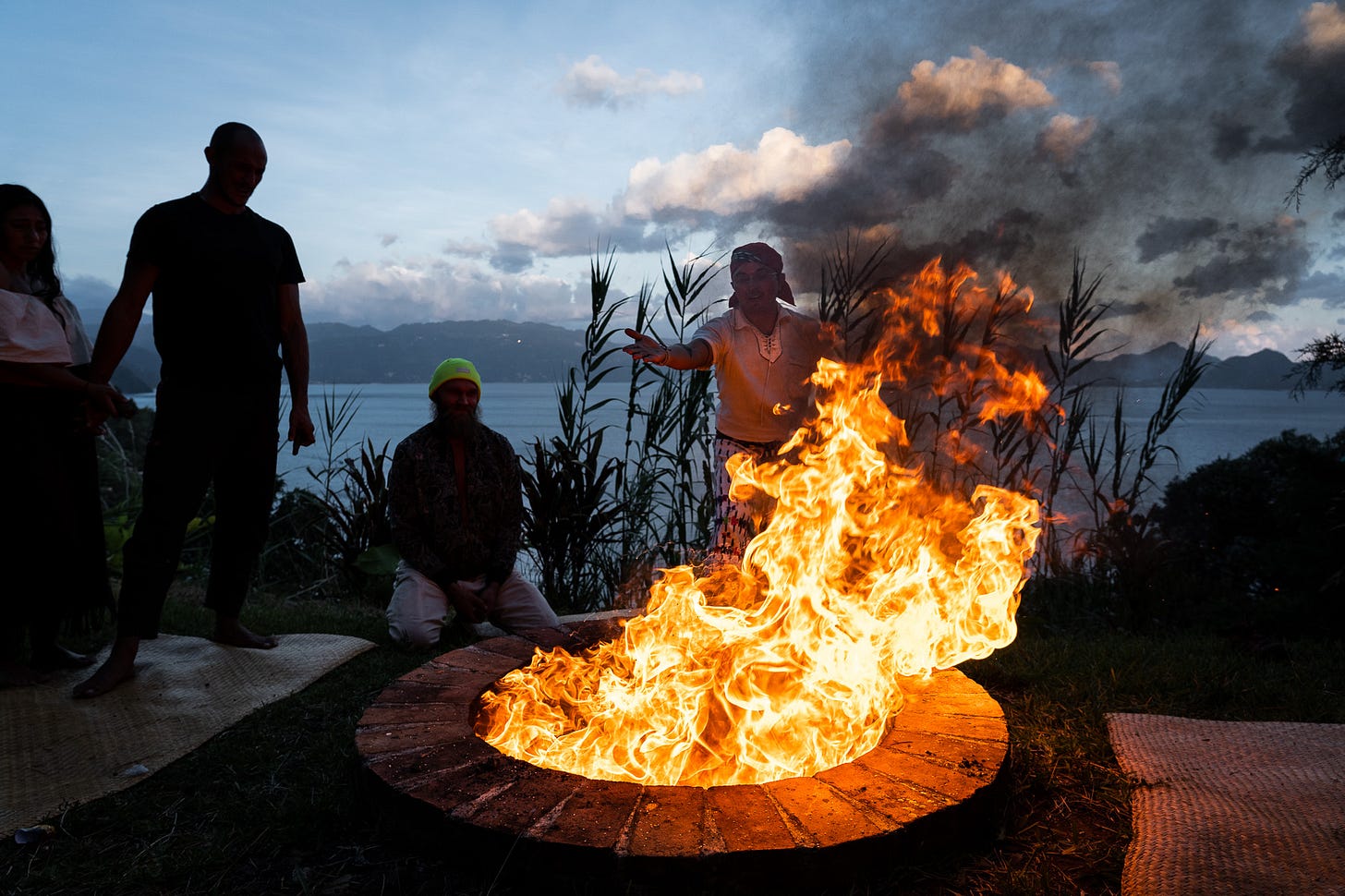What can Maya spirituality teach us about current efforts to colonise Mars?
For the first time, the West is listening to the wisdom of the people we have deemed to be our others. Can spiritual tourism offer us a way forward, or is it just a fetishisation of difference?
This week I attended a made-for-gringos fire ceremony led by Tata Búho, one of the Maya shamans who live on the shores of Lake Atitlán.
Why should you care? Because it reveals how the West is finally beginning to listen—and what we do with that listening will shape our spiritual and ecological future.
Búho invited us to make offerings to the 20 nahuales …



